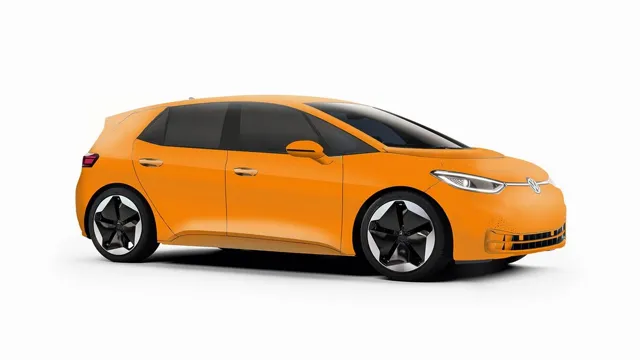Rev Up Your Knowledge: The Ultimate Electric Cars Buying Guide
Electric cars are becoming increasingly popular among drivers who want to reduce their carbon footprint and potentially save money in the long run. However, buying an electric car can be overwhelming with so many options available in the market. Before making a purchase, there are several factors to consider such as range, charging time, and cost.
In this buying guide, we will explain the basics of electric cars and provide tips on what to look for when purchasing one. Whether you’re a first-time buyer or a seasoned electric car owner, this guide will help you make an informed decision that aligns with your driving needs and budget. Let’s dive in and explore the world of electric cars.
Advantages of Electric Cars
If you’re considering purchasing a new car, it may be worth taking a look at electric vehicles. One major advantage of electric cars is their low environmental impact, as they produce zero emissions, helping to combat air pollution and reduce greenhouse gas emissions. Electric cars also offer significant savings on fuel costs, as electricity is cheaper than gasoline or diesel.
Additionally, electric motors provide smoother and quieter driving experiences compared to traditional combustion engines. While the initial cost may be higher, electric cars typically require less maintenance, as they have fewer moving parts, resulting in fewer repairs and lower long-term costs. When buying an electric car, it’s important to consider factors such as range, charging infrastructure, and the availability of incentives and rebates.
So, if you’re keen on a more eco-friendly option that saves your wallet in the long run, an electric car could be the best bet for you.
Cost Savings with Electric Cars
Electric Cars Electric cars are becoming increasingly popular all around the world. One of the main advantages of using an electric car is that it can save you a lot of money. When you compare the cost of an electric car to a traditional gasoline-powered car, you’ll notice a significant difference in the long run.
For starters, electric cars use no gas, which is one of the most expensive components of a gasoline car. Additionally, the cost of charging an electric car is also much cheaper than what it would cost to fill a tank of gas. Maintenance costs for electric cars are also considerably lower than gas cars since they don’t require oil changes, spark plugs, or other traditional engine-related parts.
Therefore, investing in an electric car is a smart decision for people who want to spend less on their cars, save money in the long run and help towards an eco-friendly environment.

Environmental Benefits of Electric Cars
Electric cars have numerous advantages over traditional gasoline cars, but the biggest benefit is their positive impact on the environment. By running on electricity, they produce zero emissions, which means they don’t contribute to air pollution or climate change. This is a huge advantage for those who are environmentally conscious and want to reduce their carbon footprint.
Additionally, electric cars have much better energy efficiency than traditional cars, meaning they consume less energy to travel the same distance. This means electric cars are cheaper to operate, and they require less maintenance since there are fewer moving parts. Overall, driving an electric car is not only better for the environment, but also for the driver’s wallet.
With the continued evolution of electric car technology, it is clear that they are becoming a more accessible and viable option for everyday drivers who want to make a positive change for the environment.
Electric Car Models and Features
If you’re in the market for a new car, considering electric vehicles is a great option for both environmental and economic reasons. However, with so many electric car models available, it can be overwhelming to decide which one is right for you. The first step is to consider your needs and priorities, such as range, charging time, and features like advanced safety systems or comfortable interiors.
Some popular electric vehicle models include the Tesla Model S, Nissan Leaf, and Chevrolet Bolt, each with its own unique features and benefits. For example, the Model S offers impressive performance and range, while the Leaf is more affordable and has a tried and true reputation for reliability. Whichever model you choose, be sure to factor in the cost of installation for a home charging station and any potential incentives or tax credits.
With careful consideration and research, an electric car can be a great investment for both your wallet and the planet.
Top Electric Car Models on the Market
When it comes to electric car models, there are several options on the market today. One popular choice is the Tesla Model S. This sleek and sporty sedan offers impressive acceleration and a smooth ride thanks to its electric powertrain.
Another great option is the Nissan Leaf, which is a more affordable choice that still offers great range and a comfortable ride. If you’re looking for something a little more luxurious, the BMW i3 might be the perfect choice. This stylish car features a unique design and high-quality materials, making it perfect for those who want to make a statement.
No matter which electric car model you choose, you can enjoy the benefits of an eco-friendly vehicle that is both quiet and efficient. So why not consider making the switch to electric today and help make the world a cleaner, healthier place for us all?
Important Features to Look for in an Electric Car
When considering buying an electric car, there are a few important features to keep in mind. First and foremost, range is a crucial factor to consider. You want to ensure that the car you choose can cover your daily driving distance without needing to constantly recharge.
Another important consideration is the type of charging port the car has and the time it takes to recharge fully. Additionally, it’s crucial to consider available features like regenerative braking, which can help maximize the car’s range by recharging the battery as you brake. Other features like adaptive cruise control, lane departure warnings, and infotainment systems can also greatly enhance your driving experience.
Some popular electric car models that incorporate these features include the Tesla Model S, Nissan Leaf, and Chevrolet Bolt. Overall, it’s essential to consider all of these factors and more when choosing an electric car that best suits your needs and preferences.
Battery Range and Charging Times
When it comes to electric car models and features, two important factors to consider are battery range and charging times. Electric vehicles vary in the miles they can travel on a single charge, with some models boasting a range of over 300 miles and others hovering around 100 miles. Additionally, charging times can range from several hours on a traditional home charger to as little as 30 minutes on a fast-charging station.
It’s important to consider your driving habits and needs when choosing an electric vehicle based on its battery range and charging times. If you have the ability to charge at home overnight and don’t typically drive long distances, a model with a lower range may be sufficient. However, if you frequently take long road trips or have a longer commute, a car with a higher battery range and the ability to fast charge may be necessary.
Ultimately, choosing the right electric vehicle for you will depend on a variety of factors, including battery range, charging times, and your specific driving needs.
Considerations for Buying an Electric Car
When considering buying an electric car, there are several factors to take into account. The first consideration is the range and battery life of the car. You want to ensure that the car can travel the distance you require without needing to recharge constantly.
Another consideration is the charging infrastructure, as public charging stations might not be widespread in your area. Safety features should also be taken into account, such as anti-lock brakes, airbags, and parking sensors. The cost of the vehicle and maintenance expenses should be considered as well, as electric cars tend to be more expensive than their gasoline counterparts.
Finally, consider the potential savings on fuel costs and the environmental impact of driving an electric car. By weighing these factors, you can make an informed decision about purchasing an electric car that meets your needs and budget.
Budget and Financing Options
When it comes to buying an electric car, budget and financing are important considerations. Although electric cars have a higher upfront cost compared to traditional gas-powered cars, they can be more cost-effective in the long run due to their lower maintenance and fuel costs. Financing options for electric cars, such as purchase or lease, can also affect your budget and overall expenses.
It’s recommended to thoroughly research and compare financing options to determine what works best for your financial situation. Additionally, incentives and rebates may be available for purchasing an electric car, which can further reduce the overall cost. Overall, while buying an electric car may initially seem expensive, it’s important to consider the potential cost savings over time and explore different financing options to make the purchase more manageable.
Infrastructural Support for Electric Cars
As more and more people consider buying electric cars, it’s crucial to think about the infrastructural support available in your area. Before purchasing an electric car, you need to ensure that charging stations are available within close proximity of your residence or office. Without conveniently located charging stations, electric cars can be cumbersome, leaving you in the lurch with a half-charged car and no place to top it up.
This is why it’s important to research and identify electric car infrastructure in your area before making a purchase. Many cities and states are investing in charging infrastructure to accommodate this growing trend. With a little groundwork, you can be assured that you have the support you need to enjoy your electric car without worrying about how and where to charge it.
Making the Switch to an Electric Car
If you’re considering making the switch to an electric car, there are a few things you should keep in mind. First and foremost, it’s important to choose a car with a range that can accommodate your driving needs. Many electric cars have ranges of 200-300 miles, which is plenty for most people, but some may require something with a longer range.
Another thing to consider is the availability of charging stations in your area. While the number of charging stations is steadily increasing, it’s wise to make sure you won’t be left without a place to charge your car. When it comes to buying an electric car, it’s important to consider the total cost of ownership, which includes not just the purchase price but also fuel, maintenance, and insurance costs.
In many cases, electric cars can be more expensive up front, but lower fuel and maintenance costs can make up for it in the long run. Overall, buying an electric car can be a positive step towards reducing your carbon footprint and saving money on fuel costs.
Tips for Transitioning to an Electric Car Lifestyle
Are you considering transitioning to an electric car lifestyle? It’s an exciting and wise decision, but it can be overwhelming at first. It’s important to start by doing research and finding the right electric car that fits your needs and budget. One of the biggest concerns people have is finding charging stations, but with the increasing popularity of electric vehicles, charging stations are becoming more accessible than ever before.
You can even install one at home for added convenience. Another tip is to plan your trips and routes ahead of time to ensure you have enough charge to make it to your destination. Additionally, you can take advantage of regenerative braking, which recovers energy while driving and extends your range.
With these tips, you can make a smooth transition to an electric car lifestyle and enjoy the benefits of driving a more sustainable, efficient, and cost-effective vehicle.
Conclusion
In conclusion, purchasing an electric car is not only a sound financial decision, but also a choice that benefits the environment and promotes sustainable living. While the initial price tag may seem daunting, the long-term savings and positive impact on our planet make it a worthy investment. Plus, who doesn’t love the feeling of zooming silently past gas stations and leaving a smaller carbon footprint? So, go ahead and make the switch to electric – it’s a smart move that will have you feeling empowered and eco-friendly in no time.
“
FAQs
What are the benefits of buying an electric car?
There are numerous benefits to buying an electric car, including lower operating costs, reduced environmental impact, and potential tax incentives.
How far can I drive on a single charge in an electric car?
The range of an electric car depends on factors such as battery capacity, driving conditions, and weather. However, most modern electric cars have a range of at least 100 miles on a single charge.
How do I charge my electric car?
Electric cars can be charged from a standard household outlet, but a dedicated charging station is recommended for faster and more efficient charging. Many public charging stations are also available.
Can I use my electric car for long road trips?
While electric cars have a limited range, they can still be used for long road trips. Planning ahead and using charging stations along the way can help ensure a successful trip.
How much do electric cars cost compared to traditional gas-powered cars?
Electric cars generally have a higher upfront cost than gas-powered cars, but lower operating costs over time. Tax incentives and rebates may also be available to offset the cost.


